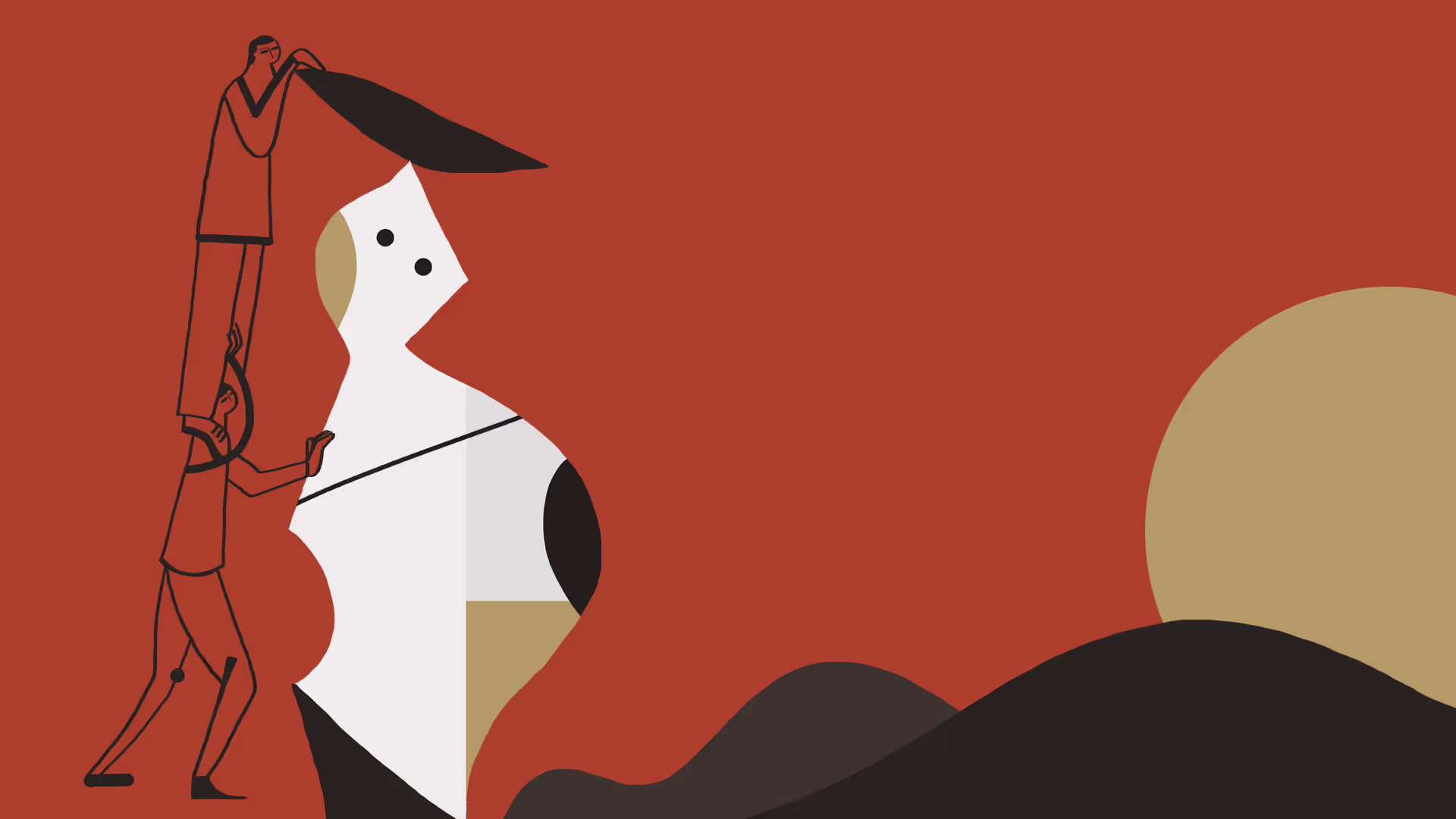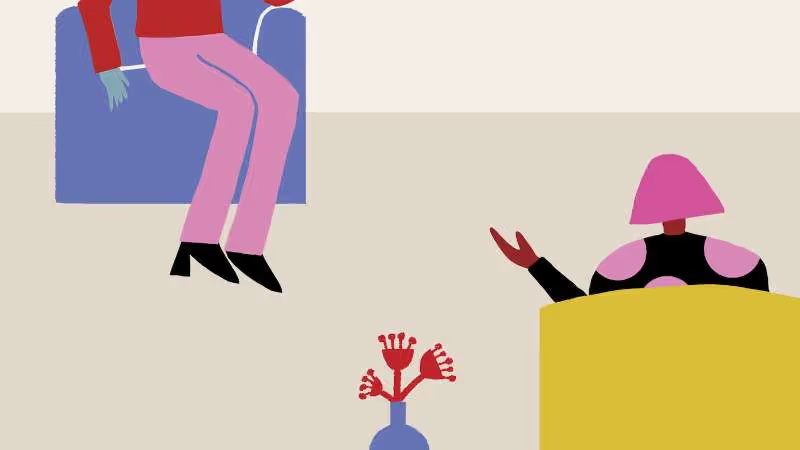Shall We Begin?
Have you ever felt helpless trying to help a loved one?
We know the stories: the alcoholic mother/brother/friend who keeps getting in trouble. The father who has been borrowing money from his adult children with the intent to pay it back but never following through. The troubled teenager whose antics torment their family, keeping them up at night. The friend who won’t leave her abusive relationship. The depressive sister who can’t get out of her rut.
And you: the siblings, the parents, the partners, the friends alternating between helplessness, anger, resentment, mistrust, and the power of our own denial. If I just give them one more chance, maybe this will be the time they change. A parade of resourceful people continuously trying to help, sharing leads, bailing them out at ungodly hours of the night, pleading and threatening. We’re hopeful. We’re terrified. What if our loved ones do something to themselves if we don't step in? Even if they've not engaged in suicidal tendencies, we fear their impulsivity. That fear grips us by the belly. Most of the time, we live in the I'm going to save you mode, but then comes the exasperation—if you want to waste your life, just do it. It’s a visceral rollercoaster.
Or maybe you’re the one in the hole and you struggle to take responsibility. The most important first step is to acknowledge your actions: “I know how hard you’ve tried to help me and how frustrating this must be for you.” The more people can acknowledge a shared reality, the more grounded they feel, which creates connection and builds trust.
Zoom out. Internally, the destructive loved one may feel weak and depleted, but interpersonally they wield so much power. They activate the entire system—their family and community—to try to get them out of their hole. It's often a Sisyphean effort. For those of us attempting to help, every time we try to lift them, they defeat us. The more we overfunction; the more they underfunction. And, in the end, we are as stuck as they are.
Zoom out farther. At times, this moral dilemma is characterized by codependence. At other times, guilt or shame. We often ask ourselves why our loved one is this way. Childhood abuse? Disease? Disorder? A narcissistic parent? Did they feel small compared to their sibling? What was the perceived slight that made them so needy? Our empathy seeks a narrative so that we may try to organize the chaos. We ponder amateurish diagnoses for our own sanity. Maybe they’re like this with everyone; maybe it’s not just me.
I’ve been there myself. I rarely ask my self-destructive friend, "how are you?" because I know I’ll just get the favor and the story. The favor is often a loan for a grandiose scheme. The story is often an excuse for why the last debt was never repaid. So, instead, we stick to politics and our kids. He’s wonderful and generous, but he is disconnected from reality and I’ve gotten lured into his fictions more than once.
And boy, do we want to believe those fictions: that they will stop drinking, gambling, hoarding, lying, or whatever it may be, because, deep down, we love them beyond comprehension. Needless to say, it’s not sustainable. It’s not healthy. So let’s strategize.
Let’s Turn the Lens on You
The dynamic you are experiencing is extremely common.
- Refrain from creating a master narrative around the behavior. Correlation is not the same as causation.
- Know that it is okay to love this person. Some of the worst husbands have made the best fathers; and vice versa. We know of parents who have financially ruined their families but never missed a baseball game. We can’t separate the light and the dark.
- But love them with your eyes open. Avoid sharing financial investments, loaning money, and falling for the same excuses over and over.
- If you want to have “the talk,” keep calm and stay on script. “This is an issue and not just with me. You do this with everybody. Why do you feel entitled to behave this way? I care about you but you are hurting me.”
- But be prepared for the denial battle. You want them to see how their behavior is harmful. You want them to own it. But the more you push, the more they may deny and turn it back on you, at which point, ask for space and walk away. No need to further engage at this time.
- Get backup. These are problems that often need multi-pronged resources and interventions, from the neighbors to the courts.
- CrisisTextLine.org is a great resource. Crisis counselors are available 24/7 to those who text them for help. Just text “home” to 741741.
- Don’t lose hope. You’re not alone and you’re not without resources. And I’ve heard many stories of people who have pulled through their issues with the help of therapists, friends, family, treatment, good information, and/or hard work. It is possible.
More From Esther
How to Find the Right Therapist For You / A Guide
If you and/or your loved one doesn’t already have a therapist, start with my article about how to find the right one. And consider reading some of the books included at the bottom of this letter.
Where Should We Begin / Season 3
The wait is over! Season 3 of Where Should We Begin will launch on Gimlet, a Spotify company, on October 10, 2019, and all other platforms shortly thereafter. Step into my office to listen in on one-time only therapy sessions with real couples navigating the complexities of modern relationships. This season on the podcast, I will be exploring the evolution of marriage through the stories of six couples at different points in their relationships. Follow Where Should We Begin on Spotify to get automatic episode updates.
(Unsent) Love Letters / A collaboration with Boston Globe
I asked my social network to send me copies of their unsent love letters. With Boston Globe Love Letters columnist, Meredith Goldstein, I read through your notes full of love, loss, lust, regret, heartache, and gratitude, and selected five for this new series.
Conversation Starters
A compendium of highly recommended sources of inspiration and information
I’m Reading:
- “Stop Walking on Eggshells: Taking Your Life Back When Someone You Care About Has Borderline Personality Disorder” by Paul T. Mason, MS, and Randy Kreger
- “I Don't Want to Talk About It: Overcoming the Secret Legacy of Male Depression” by Terrence Real.
- “The Relaxation Response” by Herbert Benson
- “Heal Your Body,” by Louise Hay
- “The Noonday Demon: An Atlas of Depression” by Andrew Solomon
- “The Normal One: Life with a Difficult or Damaged Sibling” by Jeanne Safer
- Psychology Today’s January 2019 cover story“Seeing Beyond Depression” by Edward Bullmore M.D.
I’m Watching:
- “The Dishonesty Project,” a documentary that explores dishonesty, inspired by the work of social scientist, Dan Ariely.
- Andrew Solomon’s TED Talks
- Depression, the secret we share
- How the worst moments in our lives make us who we are
- Andrew Solomon’s documentary “Far From The Tree”
- HBO’s Euphoria





.svg)





